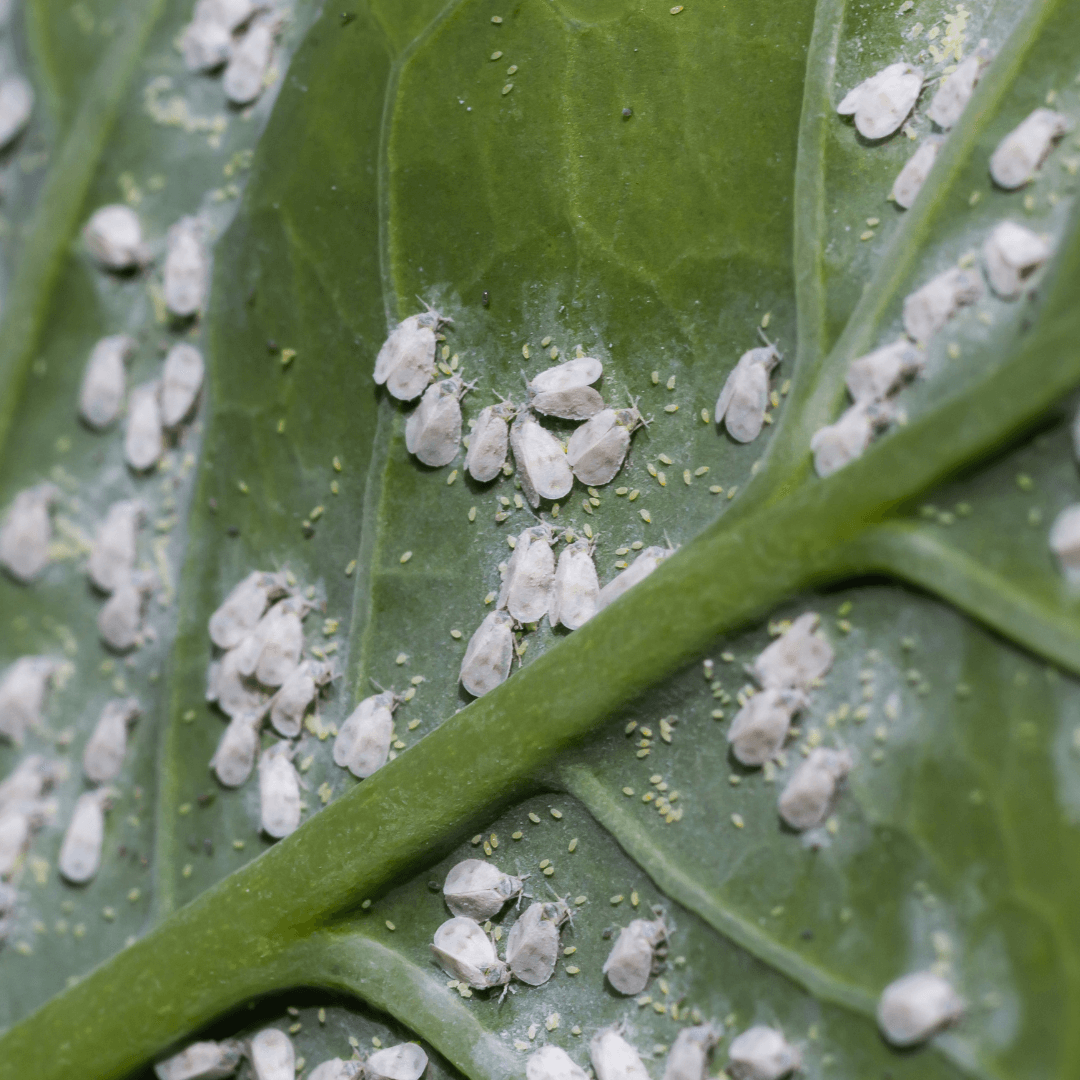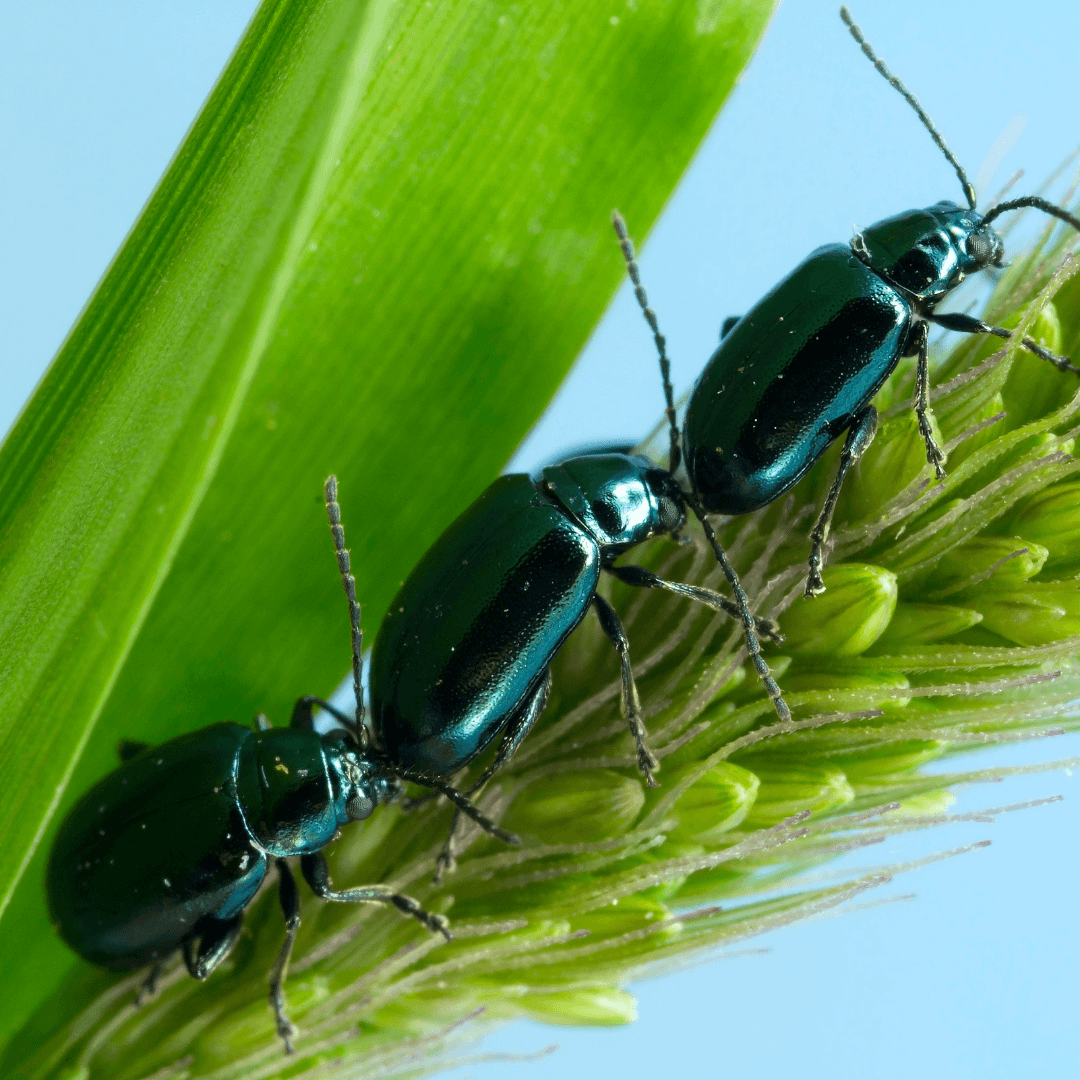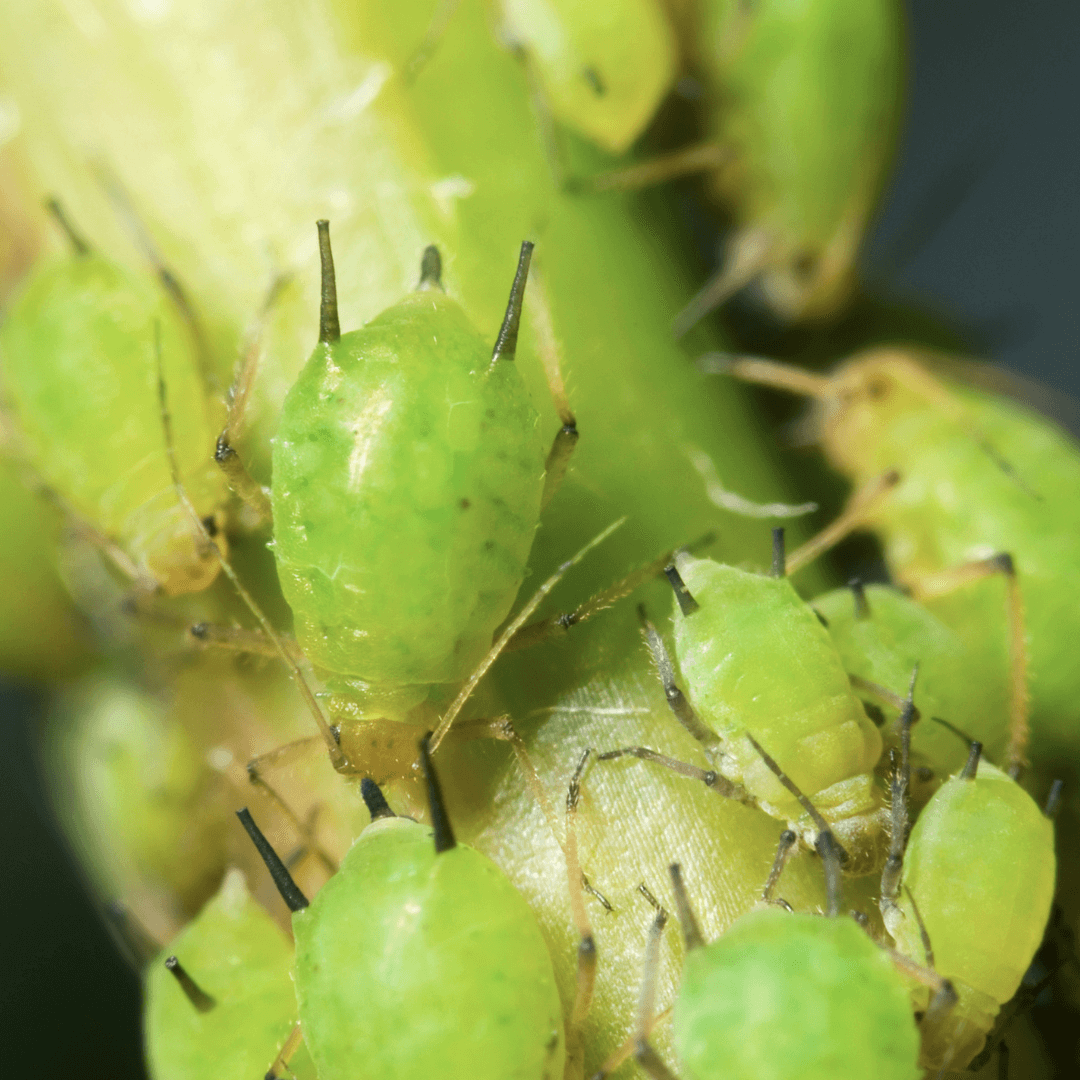The Pesky Carrot Fly
Carrot flies are tiny insects that can cause major problems for gardeners. These little bugs are about 1/4 inch long with black bodies and yellow wings. They're attracted to the smell of carrots, parsley, and other root vegetables, making them a common pest in vegetable gardens. So, let's figure out how to prevent carrot fly infestations so you can have beautiful carrots!
Carrot flies lay their eggs on the soil near the base of the plant, and when the maggots hatch, they burrow into the roots and feed on their nutritious flesh. This damage results in stunted growth, misshapen roots, and eventually rotting from secondary infections.
The worst part is that carrot fly infestations can be difficult to detect until too late. By then, the damage had already been done.
Carrots are an important food crop and an aesthetic feature in many gardens - no one wants to see their hard work ruined by these pesky pests. If left unchecked, carrot fly infestations can quickly spread throughout your garden and ruin other crops.
But don't worry! You can use several effective prevention techniques to keep these pests at bay.
Understanding Carrot Fly
What are Carrot Flies?
Carrot flies are small, black-bodied flies that resemble common houseflies. They are about 1/4 inch long and have yellowish legs, wings, and heads.
They are most active during summer and lay their eggs in the soil near root vegetables like carrots, celery, and parsnips. Once hatched, the larvae burrow into the roots of these plants and feed on them, causing significant damage.
How Do Carrot Flies Damage Root Vegetables?
Carrot flies can be a significant problem for gardeners because of the damage they can cause to root vegetables. The larvae of carrot flies eat through the outer layer of roots and leave behind a trail of brown slime which serves as an entry point for bacteria or fungal infections. This damages the current crop and can lead to soil contamination that affects future crops.
Physical Appearance & Behavior
Carrot flies are attracted to certain smells, such as freshly turned soil or decaying plant material. They use their sense of smell to locate potential host plants like carrots or celery, laying their eggs in cracks or crevices in the soil nearby. The eggs hatch into tiny white maggots, which burrow through the carrot root vegetation causing significant damage along the way.
Carrot Seeds For Planting | 5 Variety Pack

$9.95
Grow Your Own Carrots: 5 Carrot Seeds Variety Pack – Heirloom, Non-GMO, Open-Pollinated Introducing our 5 Carrot Seeds Variety Pack – a premium collection of heirloom carrot seeds designed for gardeners who want to grow fresh, vibrant, nutrient-packed carrots right… read more
The Importance of Understanding Carrot Fly
Understanding carrot fly behavior is crucial because it allows you to take preventative measures before an infestation arises. Identifying these pests will help you spot an infestation early enough so you can take action before too much damage is done.
By learning how carrot flies behave and what attracts them, you can take steps toward preventing infestations from happening in your garden while protecting your crops from damage and decay.
Prevention Techniques
Planting Carrots in the Right Location
If you want to grow carrots effectively, it's important to plant them in the right location. Carrots are a cool-season vegetable that prefers well-drained soil with a pH between 5.5 and 7.5.
They also require at least six hours of sun exposure per day, so choose a location with plenty of sunlight. Make sure you prepare your soil by removing rocks and stones that could impede growth or damage the roots of your carrots.
Loosen the soil to a depth of at least a foot so that carrot roots can penetrate deep enough for proper development. Ensure that your garden bed has proper drainage, as carrots do not like wet feet and are prone to rot if they sit in waterlogged soil for too long.
Companion Planting
Companion planting is an organic gardening technique where two or more plants are grown together for mutual benefit. Certain plants attract beneficial insects, while others repel pests like carrot flies. For example, planting onions or garlic near your carrot crop can help deter carrot flies because they don't like the smell of those plants. There are a lot of great companion plants for carrots that can help deter carrot flies.
Another option is to grow herbs like rosemary or thyme nearby, which can help mask the scent of your carrots and make it harder for carrot flies to detect them. Also, consider planting flowers such as marigolds or nasturtiums around your garden bed, as they have been known to repel pests and attract beneficial insects like ladybugs which eat aphids.
Crop Rotation
Crop rotation involves moving crops from one garden area to another each year. This helps prevent pests from building up in the soil because different crops take different nutrients from the ground, making it less likely that one type of pest will find everything it needs in one place.
For example, if you grew carrots in one bed this year, you should avoid planting them in the same spot next year. Instead, plant a different crop, like beans or peas, in that location.
Crop rotation also helps maintain soil fertility since different plants require different nutrients. It's important to keep a record of what crops have been grown and where so that you can rotate effectively and prevent nutrient depletion.
Rainbow Carrot Seeds

$2.49
Grow Vibrant Rainbow Carrots with Our Heirloom, Non-GMO, Open-Pollinated Seeds! Discover the joy of cultivating Rainbow Carrots—a stunning mix of colorful roots ranging from deep purple to bright yellow, orange, and red. These non-GMO, non-hybrid, heirloom carrot seeds are perfect… read more
Covering with Fleece or Netting
Covering your crops with fleece or netting can help prevent carrot flies from laying eggs on your plants. This method also protects your crops from other pests like birds and rabbits.
When covering your crops, secure the edges of the material to the ground to prevent pests from entering underneath. Also, thoroughly water your plants before covering them so they don't dry out.
Fleece is a better option for colder regions as it keeps plants warm and promotes growth, while netting is better suited for warmer climates as it allows for more air circulation. Regardless of your chosen material, ensure it's properly installed and maintained throughout the growing season.
Additional Tips
Harvesting at the Right Time: Don't Let Carrot Flies Get Too Comfy!
When it comes to carrot flies, timing is critical. Waiting too long to harvest your carrots can make them a prime target for these pesky insects. Mature carrots left in the ground too long become sweeter and more fragrant, attracting carrot flies.
If you wait too long, you may find that your crops have already been infested with fly larvae by the time you pull them out of the ground. To prevent this from happening, you should aim to harvest your carrots as soon as they are large enough to eat.
This usually occurs around 60-80 days after planting, depending on the variety of carrots you've chosen. You can test your carrots for maturity by gently pulling one out of the soil and checking its size and color.
Cleaning Up Garden Debris: The Importance of Keeping a Tidy Garden
Carrot flies love hiding in garden debris like fallen leaves, weeds, and other plant matter. These hiding places are ideal for adult carrot flies to lay their eggs near your crops. To reduce the risk of infestation, keeping your garden tidy is important by regularly clearing away any debris that could harbor pests like carrot flies.
This includes raking up leaves and other dead plant material, pulling out weeds as soon as they appear, and properly disposing of spent plant matter. In addition to removing potential breeding grounds for carrot flies, keeping a tidy garden can also help improve overall plant health by reducing competition for resources like sunlight and water.
A Final Word on Preventing Carrot Fly Infestations
Preventing carrot fly infestations requires a combination of preventative measures that target adult flies, larvae, and breeding sites. By planting carrots in the right location, using companion planting techniques, rotating crops regularly, covering your plants with fleece or netting, harvesting at the right time, and keeping a tidy garden, you can significantly reduce the risk of carrot fly infestations in your backyard garden.
Remember that a little preparation and vigilance go a long way when it comes to preventing pests like carrot flies. With the right knowledge and tools, you can keep your crops healthy and thriving all season.
Imperator 58 Carrot Seeds

$2.49
Imperator 58 Carrot Seeds – Heirloom, Non-GMO, Non-Hybrid, Open-Pollinated Grow your best carrots ever with our premium Imperator 58 Carrot seeds! These high-quality, heirloom seeds are non-GMO, non-hybrid, and open-pollinated, making them perfect for home gardeners, sustainable growers, and seed… read more
Conclusion - How to Prevent Carrot Fly
Carrot flies can be a real headache for gardeners, but preventing their infestation is not impossible. You can keep your carrots and other root vegetables safe from these pesky insects by implementing certain strategies. To recap, to prevent carrot fly infestations in your garden, it's essential to plant them in the right location.
Make sure the soil is well-drained and sandy. Carrot flies do not like sandy soil.
Choose a sunny location free of weeds and grasses, ideal hiding places for carrot flies. Companion planting is another effective method of keeping carrot flies away from your crops.
Onions or garlic planted around your carrots repel them effectively. Additionally, rotating crops every year and cleaning up any debris within the garden helps prevent carrot fly populations from building up.
You can also cover your crops with fleece or netting to prevent carrot flies from laying eggs on the plants. Ensure you water under the covering so that moisture remains prevalent.
Harvesting at the right time is critical as it prevents damage by carrot fly larvae which appear later in summer, swiftly destroying mature carrots if left unchecked. : Prevention techniques that include; planting carrots in sandy soil, companion planting with onions or garlic, crop rotation, covering with fleece or netting, and harvesting at the right time will help you avoid problems with these pests and keep your harvest healthy throughout the growing season.
Remember that prevention is always better than cure when protecting your garden against pests like the dreaded carrot fly! By following these tips, you'll enjoy a bountiful harvest of delicious fresh vegetables all season long!
 FAQ: How to Prevent Carrot Fly
FAQ: How to Prevent Carrot Fly
-
What is a carrot fly?
A carrot fly (Psila rosae) is a small, dark-colored fly that lays its eggs in the soil near the base of carrot plants. The larvae feed on the roots, causing damage that can lead to stunted growth, wilting, and a characteristic rusty or reddish color on the affected roots.
-
How can I identify carrot fly damage?
Carrot fly damage can be identified by the presence of small tunnels in the roots, usually accompanied by a rusty or reddish color. Additionally, affected plants may display stunted growth, wilting, and poor overall health.
-
When is the carrot fly most active?
Carrot flies are most active during the warmer months of the year, typically between May and September. They lay their eggs in two or three generations per season, which means that you may see carrot fly activity throughout the growing season.
-
How can I prevent carrot fly infestations?
There are several ways to prevent carrot fly infestations:
a. Use physical barriers: Use insect netting or fleece to cover your carrot plants, preventing the adult flies from accessing your crop to lay their eggs.
b. Practice crop rotation: Avoid planting carrots in the same spot each year, as this can help to break the life cycle of the carrot fly.
c. Sow carrot seeds thinly: Sowing seeds thinly can help to reduce the need for thinning, which can release the scent of carrots and attract carrot flies.
d. Use companion planting: Planting aromatic herbs like chives, garlic, and sage near your carrots can help to mask their scent and deter carrot flies.
-
Are there any natural predators of the carrot fly?
Yes, some natural predators can help to control carrot fly populations. These include ground beetles, parasitic wasps, and some bird species like robins and starlings. Encouraging these predators in your garden can help to reduce carrot fly numbers.
-
Can I use chemical control methods to prevent carrot fly infestations?
Chemical control methods are generally not recommended for home gardeners, as they can harm beneficial insects and have potential health risks. Instead, focus on preventative measures like physical barriers, crop rotation, and companion planting.
-
Can I still eat carrots that have been affected by carrot flies?
Yes, you can still eat carrots that have been affected by carrot flies, although the damaged areas should be cut away before consumption. The tunnels created by the larvae may allow for the entry of secondary infections or pests, so it's essential to inspect the carrots thoroughly before eating them.



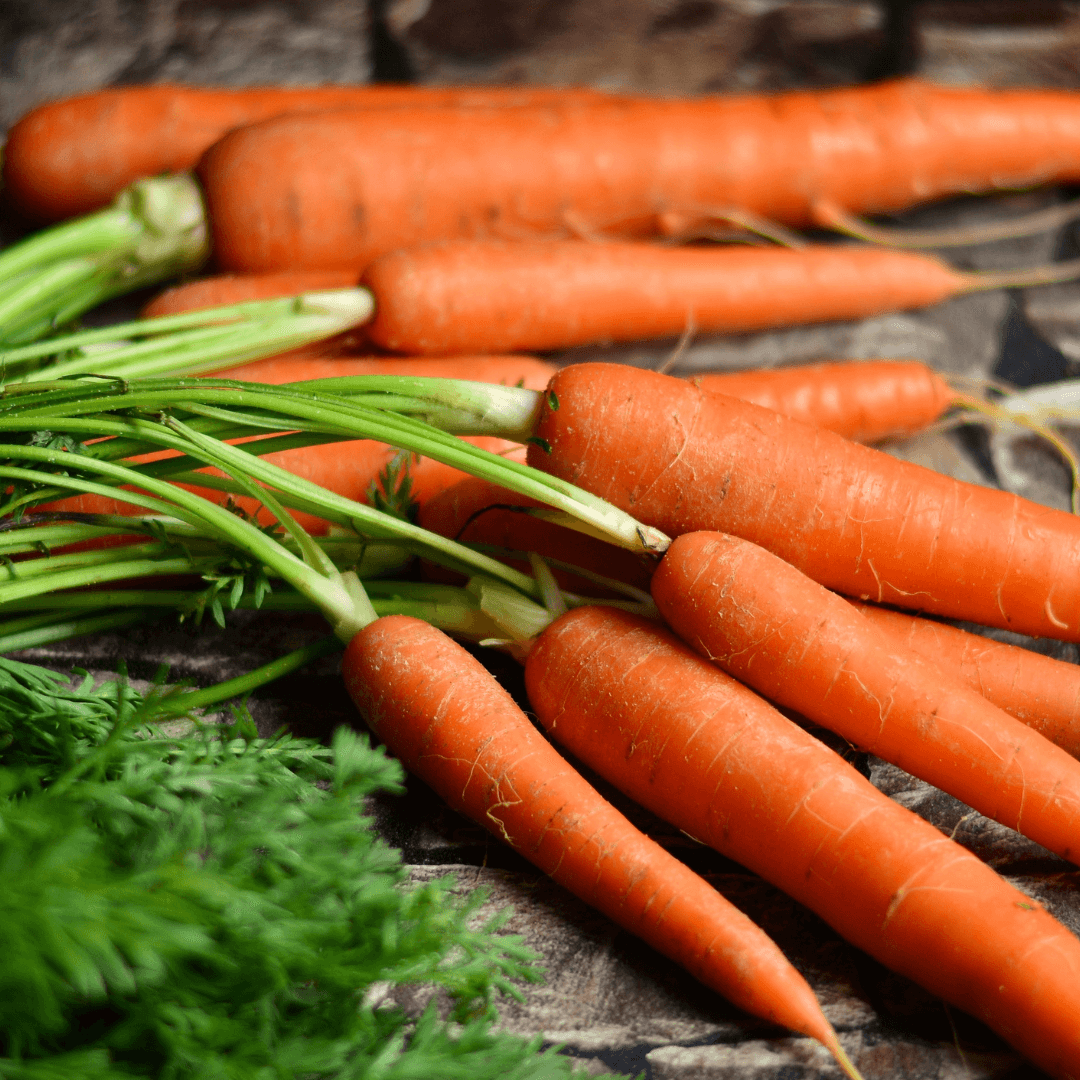

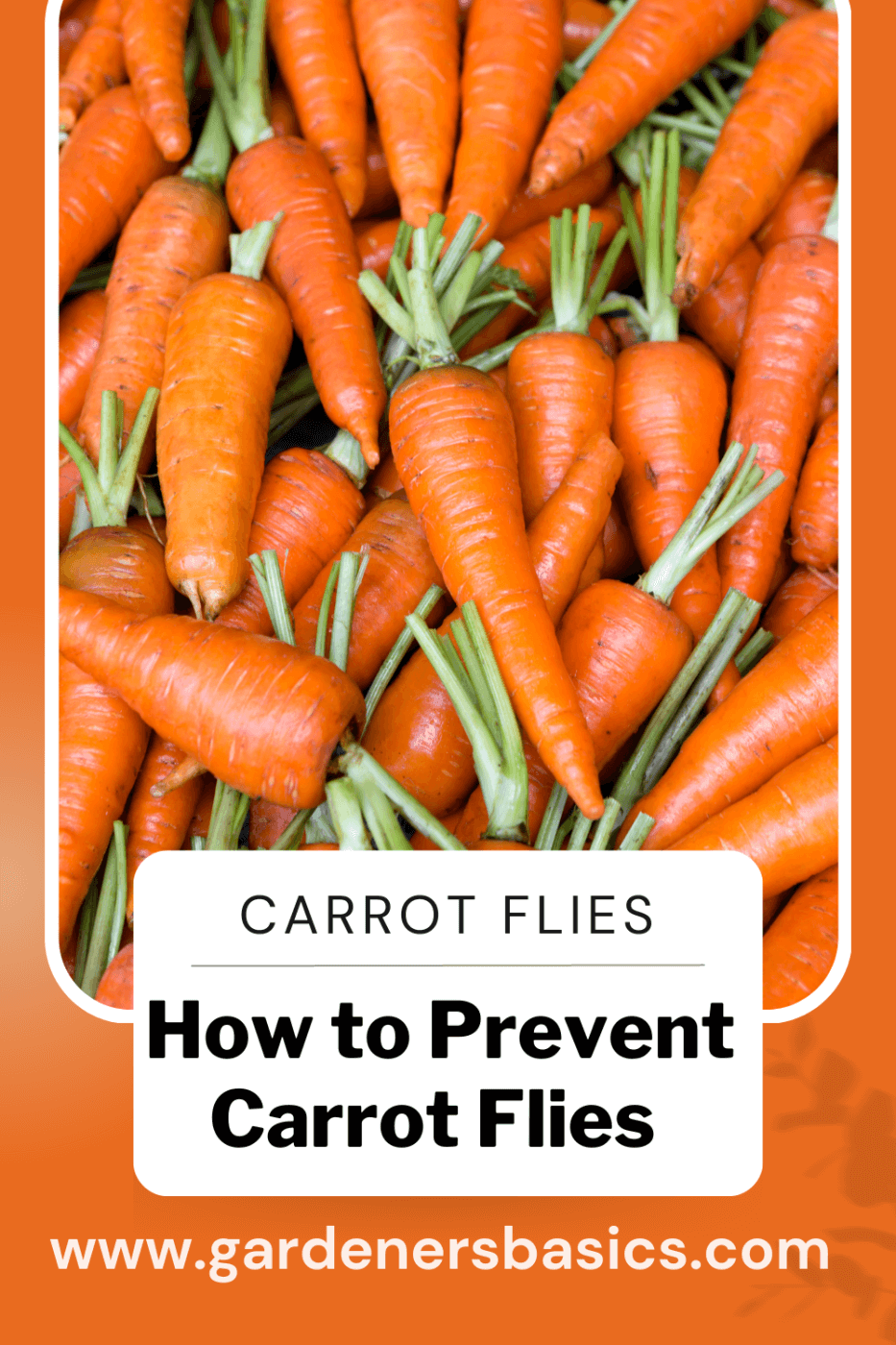 FAQ: How to Prevent Carrot Fly
FAQ: How to Prevent Carrot Fly